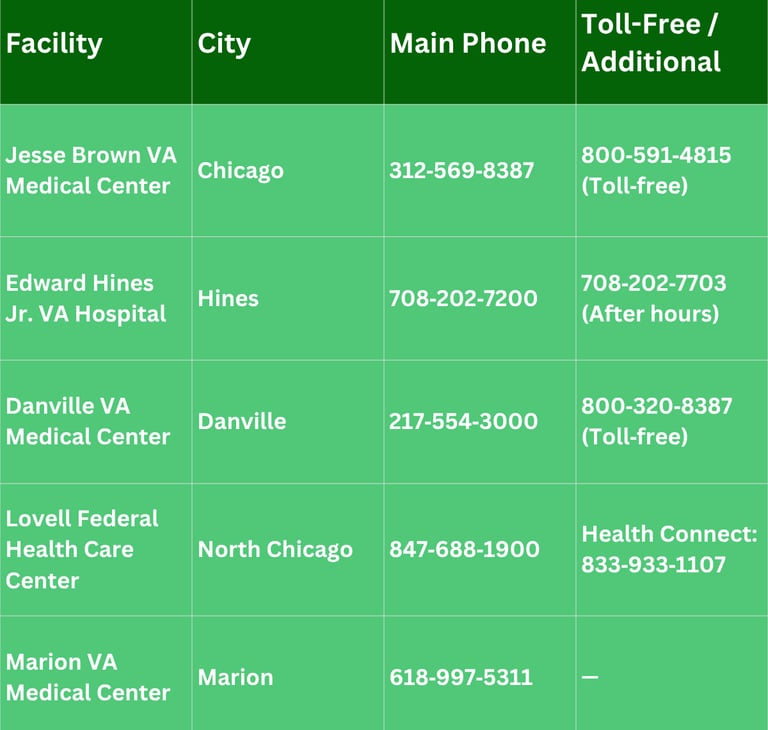Step-by-Step Guide: Applying for HUD-VASH Vouchers Successfully
Getting assitance has become an war this past year. Economic Devepment have created a guide to make the process easier. Feel to share with fellow veterans.
8/1/20256 min read


Step 1: Determine Eligibility
Before starting the application process, make sure you meet the basic eligibility criteria:
Veteran status: Must be eligible for VA healthcare.
Homeless or at risk: As defined by HUD or literally homeless.
Need for case management: Must agree to receive VA case management services.
Contact your local VA Medical Center (VAMC) to confirm eligibility.


Step 2: Connect with a VA Case Manager
Your VA case manager is critical to the HUD-VASH process. They will:
Assess your needs.
Verify your homelessness status.
Refer you for a HUD-VASH voucher if appropriate.
Call or visit the Homeless Program Office at your local VAMC.
What You’ll Need When You Call or Visit
Bring or prepare:
VA ID or Social Security Number
Service history (DD-214, if available)
Current living situation (describe if staying in shelter, car, etc.)
Willingness to participate in case management
Phone Script: Requesting a HUD-VASH Case Manager
Call: [Nearest VAMC main number — e.g., Jesse Brown VA Medical Center: 312-569-8387] Say:
“Hello, my name is [Your Name], and I’m a veteran seeking assistance with housing. I’d like to speak with someone in the HUD-VASH program or the Homeless Program Office about getting help with a housing voucher and case management.”
Step 3: Referral to Public Housing Authority (PHA)
Once your VA Case Manager determines you're eligible for HUD-VASH, they will submit an official referral to a local Public Housing Authority (PHA). This is the agency that manages housing vouchers in your city or county.
What Happens in This Step?
VA Submits Referral
PHA Receives & Reviews Your Referral
You Get Scheduled for a Briefing
What You Can Do
Even though the VA manages this step, you can stay proactive:
Ask your case manager: “Has my referral been submitted to the Public Housing Authority yet?”
Record the name of the PHA you're referred to. (It’s often tied to your county or metro area.)
Prepare your documents for when the PHA contacts you (e.g., ID, Social Security card, proof of income).
Printable Check List:
Illinios Major VA Medical Centers
Step 4: Complete Housing Voucher Paperwork
You’ll need to provide:
Proof of identity and income (if any).
Social Security card.
Birth certificate or DD-214.
VA referral documentation.
The PHA will help guide you through the necessary forms.
What Happens Here?
Once the Public Housing Authority (PHA) accepts your referral, you will be invited to complete paperwork for your housing voucher. This voucher helps pay rent for a private housing unit.
Key Tasks:
Attend a Voucher Briefing
Complete an Application
Sign a Housing Assistance Agreement
Submit Any Additional Paperwork
Tips for Success:
Bring All Necessary Documents:
Ask Questions: Don’t hesitate to ask about the timeline, how to search for housing, and how your voucher amount is calculated.
Stay in Contact: Keep your case manager and PHA updated on your housing search progress.
Step 5: Attend Housing Briefing
The PHA will schedule a briefing to explain:
How housing vouchers work.
Tenant responsibilities.
How to find eligible housing.
Note: Ask questions during this session to avoid future issues.
What to Ask
When you attend your housing voucher briefing with the Public Housing Authority (PHA), it’s your chance to get all the info you need about using your voucher successfully.
Key Questions to Ask:
1. Voucher Details
How much is my voucher amount?
How long is the voucher valid?
What happens if I don’t find housing within the voucher timeframe?
Can the voucher be renewed or extended?
2. Finding a Rental Unit
Are there any restrictions on the types or locations of housing I can choose?
Do I need landlord approval before applying?
Can I rent anywhere I want, or only in certain areas?
What kind of documentation do landlords need from me?
3. Responsibilities & Rules
What portion of the rent am I responsible for?
What happens if I can’t pay my share one month?
What are my responsibilities to maintain the unit?
What are the grounds for voucher termination?
4. Inspection Process
How often will the unit be inspected?
What do inspectors look for during inspections?
How do I prepare my unit for inspection?
What happens if the unit fails inspection?
5. Support Services
Does the VA case manager stay involved after I find housing?
Who do I contact if I have problems with my landlord?
Are there resources to help with moving costs or furniture?
6. Additional Tips
Can I transfer my voucher if I move?
Are utilities included in the voucher amount?
What paperwork do I need to submit to the PHA regularly?
Pro Tip: Bring a notebook or phone to take notes, and keep contact info for your case manager and
Step 6: Search for Housing
Once you’ve received your HUD-VASH voucher and attended the briefing, you're ready to start looking for a place to live. This is your chance to find stable, affordable housing with support from both the VA and the Public Housing Authority (PHA).
What to Do:
Understand Voucher Limits
Search Within the Approved Area
Look for HUD-VASH Friendly Landlords
Prepare a Rental Packet
Contact Landlords Professionally
Coordinate With Your Case Manager
Tips for Success:
Keep a log of where you applied and landlord contact info.
Respond quickly to rental ads and follow up after visiting.
Bring a friend, family member, or VA staff when visiting units if you feel safer.
Step 7: PHA Inspects the Unit
Before you can move in, your chosen rental unit must pass an inspection conducted by the Public Housing Authority (PHA). This ensures the home meets HUD's Housing Quality Standards (HQS) — meaning it’s safe, decent, and sanitary.
What Happens During the Inspection?
A PHA inspector will visit the unit to check:
Plumbing: No leaks, proper water pressure, hot water available
Electricity: Working outlets, lights, no exposed wiring
Heat & Ventilation: Safe heating system, windows that open
Structure: No holes in walls, ceilings, or floors; secure doors and windows
Safety: Working smoke detectors, no pest infestations, secure handrails
Kitchen & Bathroom: Functioning appliances, clean and safe surfaces
General Cleanliness & Sanitation
What You Should Do:
Tell Your Landlord
Inspect It Yourself First
Remind the Landlord to Make Repairs
Be Present (if allowed)
Follow Up Promptly
If it fails, the landlord may fix issues or you’ll need to find another unit
Step 8: Move In and Maintain Compliance
Once your unit passes the PHA inspection, you’re ready to move in. But receiving HUD-VASH support doesn’t end there — you must also follow program rules to keep your housing stable.
Moving In
Sign the Lease
The lease must match what was approved by the PHA.
Make sure you keep a copy of your signed lease and any related paperwork.
Set Up Utilities
Ask your landlord which utilities you're responsible for.
Set up accounts for gas, electricity, water, etc.
Coordinate With Your VA Case Manager
They may help with move-in costs, referrals for furniture, or local community resources.
Maintaining Compliance
To keep your HUD-VASH voucher active, you must:
1. Pay Your Portion of Rent On Time
Always pay your share by the due date listed in your lease.
If you fall behind, notify your VA case manager immediately.
2. Maintain the Unit
Keep it clean and safe.
Report any issues (like mold or plumbing problems) to your landlord ASAP.
Don’t make unauthorized alterations or sublet your unit.
3. Let the VA and PHA Know of Any Changes
Report Changes in:
Income Changes
Increase or decrease in wages
New job or loss of employment
Changes in benefits (eg, Social Security, VA benefits, SSI)
Child support, alimony, or other income changes
Household Composition
Someone moves in or out of your home
Birth or adoption of a child
Death of a household member
Marriage, separation, or divorce
Assets
Significant changes in savings, checking accounts, investments
Acquisition of property (land, vehicles, etc.)
Address or Contact Info
Change of mailing or physical address
New phone number or email address
Rent or Utility Changes
Change in rent amount (for assisted housing)
Change in utility responsibility
Disability Status
New disability claim or change in disability rating (for VA)
Medical condition affecting eligibility or benefits
School/Student Status
Household member becomes a full-time student
School enrollment changes (relevant for income calculations)
Criminal Background or Legal Issues
Arrests, convictions, or legal actions affecting housing eligibility
Changes in Childcare or Medical Expenses
Start or stop of childcare or eldercare
Significant changes in medical or disability-related expenses (for deductions)
Absence from the Unit
Plan to be away from the home for an extended period (usually 30+ days)
4. Stay in Touch with Your Case Manager
Regular check-ins are part of the HUD-VASH program.
Let them know about any housing or personal issues you’re facing.
5. Allow Inspections
Your unit may be re-inspected annually or as needed.
Cooperate with PHA or VA staff when they visit.
Risks for Non-Compliance
Failure to meet the above requirements may result in:
Termination of your voucher
Eviction from the unit
Loss of future HUD-VASH eligibility
Ongoing Support
Don’t hesitate to reach out to your VA case manager for:
Mental health support
Help with employment or benefits
Conflict resolution with landlords or neighbors
Access to food, transportation, or medical car
Additional Tips
Be patient but persistent: The process can take time.
Keep documents organized: Quick access to IDs and service papers speeds up the process.
Ask for help: Case managers are there to assist—don’t hesitate to reach out
Economic Development Corp
14430 Martin Luther King Dr, Dolton, IL 60419
